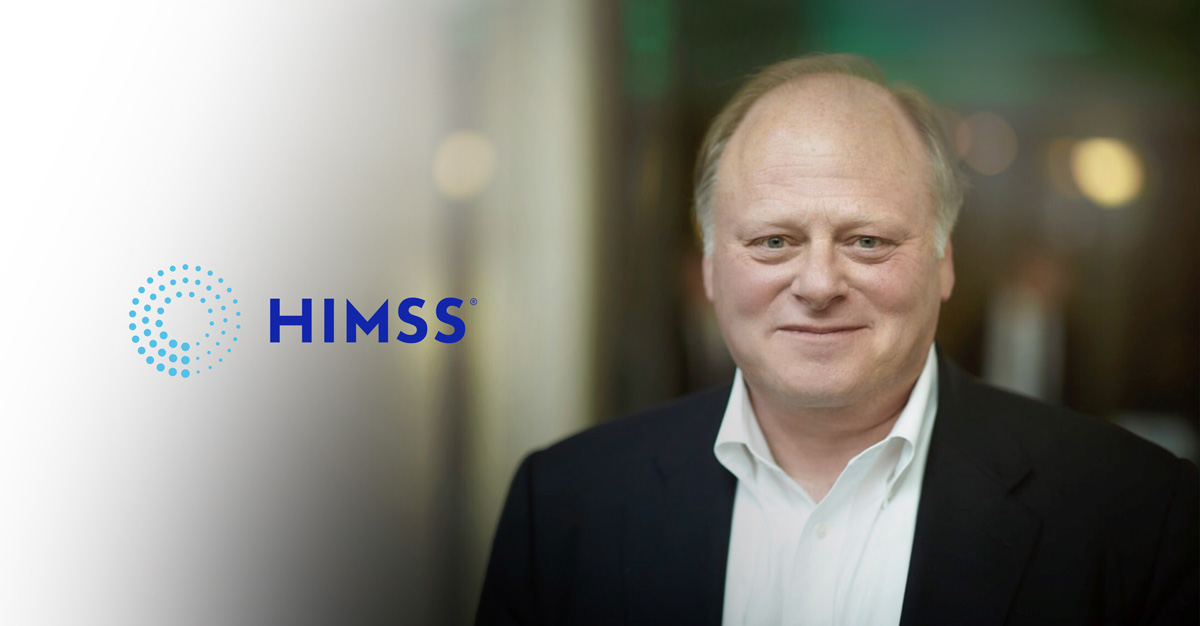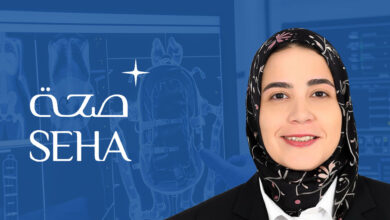Digital Health Has a New Power Center: Why All Eyes Are on the Middle East
By Hal Wolf, President & CEO, HIMSS

The Middle East is fast becoming a focal point for digital health innovation. From national strategies that emphasize AI and health data governance to investments in cybersecurity and connected care, countries across the region are laying the groundwork for health systems that are more integrated, resilient, and responsive to the needs of their populations.
A Region in Motion
Countries, including the United Arab Emirates, the Kingdom of Saudi Arabia, the State of Qatar, and many others, are rapidly advancing national health agendas focused on digital maturity. Examples of these ambitious national visions include Saudi Arabia’s Vision 2030, the UAE’s Health Strategy, and Egypt’s digital transformation plan. The region is rethinking how systems are structured, how care is delivered, and how data can inform public health planning and patient outcomes. Digital health investment in the Middle East is at an all-time high and will continue to rise.
This momentum is encouraging, but with scale comes complexity. Countries must address challenges around data access and governance, interoperability, AI regulation, digital workforce development, and cybersecurity. The region’s healthcare leaders are actively working to address these issues, not only as operational and technical challenges but also as questions of equity and long-term sustainability.
A strong commitment to digital health transformation is critical to preparing GCC health systems to address the rising demand for health services, driven by an aging population, rising chronic disease rates, and patient demand for both convenience and personalized care. These factors are putting significant strain on health systems already managing geographic fragmentation, limited interoperable data infrastructure, variance in regulatory maturity, and workforce shortages.
These challenges are not unique to the Middle East – health organizations across the globe face similar issues. Regional health leaders recognize these shared constraints within the global health ecosystem. They are partnering with NGOs, international governments, and leading health systems to share critical insights that will help drive digital health transformation across the Middle East.
As a non-profit organization, HIMSS brings together the brightest minds across healthcare, technology, policy, and research to solve today’s challenges and prepare for the technological advancements of tomorrow.
HIMSS serves as a convener of thought leaders and ideas, providing a platform for healthcare leaders to connect, collaborate, and share critical insights through our professional society, global conferences, and regional forums. We also train future digital health leaders through our professional development courses and certifications. The Middle East can leapfrog legacy constraints by combining strong public leadership with agile private innovation. The region is well-positioned to succeed in building on already strong public-private partnerships. CEOs should focus first on interoperable foundations, data governance, workforce development, and regulatory clarity to unlock scalable digital health models that improve outcomes and financial sustainability. Move deliberately: pilot fast, measure rigorously, and scale only when outcomes and economics are proven.
Four Focus Areas for Sustainable Transformation
1. Digital Health Infrastructure and Maturity
Digital health transformation is the shift towards an ecosystem of healthcare tools like patient portals, telehealth, predictive analytics, and AI. When patients remain the focus of digital health transformation, innovation improves outcomes for all. Transforming digital systems means better use of EHRs, improved infrastructure, less workforce burnout, and increased access to care. Digital health maturity helps health systems deliver personalized care at scale, provide the correct data to the right people, and allows clinicians to focus on what matters most – patients.
2. Responsible Use of AI
Artificial intelligence is transforming health and healthcare, empowering clinicians and organizations to improve clinical decision-making, patient engagement, data governance, and resource management. Despite its potential to enhance patient outcomes, reduce costs, alleviate workforce burnout, and strengthen interoperability, health professionals remain mindful of the risks and challenges associated with AI integration.
AI is no longer an abstract technology; it is a strategic catalyst that multiplies clinical impact, operational resilience, and equity across health systems. Health systems and governments alike must embrace and adequately prepare for effective and equitable AI integration. When responsibly deployed, AI can positively impact nearly every aspect of the Middle East’s health ecosystem.
3. Cybersecurity
Healthcare is a top target for cybercriminals due to sensitive patient data, critical operational systems, and a high likelihood of ransom payment. Cyberattacks have ranged from ransomware and data breaches to medical device compromise, supply‑chain threats, and insider risk.
The potential consequences are severe and include patient safety incidents, operational disruption, regulatory fines, long‑term reputational damage, and significant remediation costs. Cybersecurity is a strategic business risk, not just an IT issue, requiring board oversight, executive ownership, and investment proportional to patient safety and operational impact.
4. Building the Workforce of Tomorrow
Digital transformation in healthcare is outpacing workforce readiness. Organizations face a shortage of clinicians, informaticians, data scientists, and digital program managers who understand both clinical workflows and emerging technology. Critical gaps include limited digital literacy among frontline staff, a lack of clinician leaders with informatics expertise, and insufficient training pathways for emerging roles.
Healthcare leaders should treat workforce development as a strategic enabler rather than an operational afterthought. Build a coordinated talent strategy that combines rapid upskilling of existing staff, recruitment of niche digital expertise, and partnerships with academic institutions and vendors for pipeline development. Practical steps for health organizations include defining core digital competencies, embedding protected time and incentives for clinician participation in technology projects, increasing investment in professional development programs, and establishing multidisciplinary delivery teams led by empowered clinical-digital leaders.
WHX Tech: A Forum for Shared Learning
The region’s digital health transformation efforts will take center stage at WHX Tech 2025, held 8–10 September at the Dubai World Trade Centre. The event will bring together regional leaders, innovators, and global health experts to explore the future of health and healthcare. HIMSS is proud to serve as the exclusive digital health partner for this timely gathering, contributing expertise on frameworks, policy, and global lessons learned.
WHX Tech 2025 offers an opportunity to reflect on what the Middle East has already achieved—and what’s ahead. With stages dedicated to strategy (World X), technology (Future X), and innovation (Xcelerate), the event will spotlight everything from AI regulation and cloud adoption to value-based care and public-private partnerships.
Looking Ahead—With Purpose
What’s happening in the Middle East is not simply a regional shift. It’s a signal to the global health community. It shows what can happen when ambition, policy, and collaboration converge.
The pace of change is impressive, but what’s most inspiring is the intention behind it – to build systems that are not only more efficient, but also more equitable and adaptive to future challenges.
Digital health has a new power center. And the world is watching. We look forward to welcoming health leaders, policymakers, and innovators to WHX Tech, Dubai, this September—to share what’s working, to ask the right questions, and to shape the next chapter of global health transformation.














